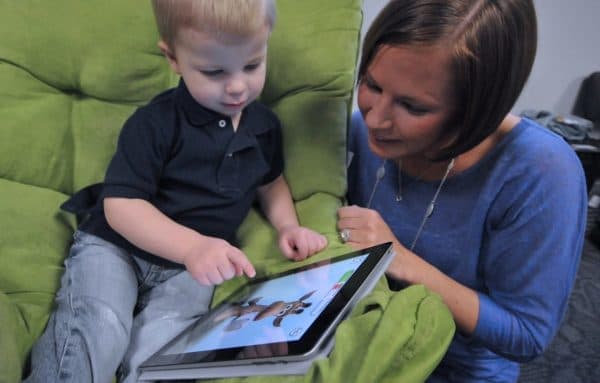1. Celebrate the opportunities in the digital world, while reducing the risks
We have all heard the latest horror story from media about ‘some poor misguided child’ and the dangers that followed. But parents – keep your perspective and look for the positive things that young people are doing online. For example, one brave 13 year old boy created a YouTube video to sensitive young people about Cyberbullying. In another instance, an 18 year old created a website to allow motorists to challenge tickets. Or there was a 7 year old girl who created bedtime videos for the daughter of a fallen police officer. There are also many children with SEND connecting online through platforms like Minecraft.
Internet, social media and technology can present fantastic opportunities for our children, provided that our children use these tools in a responsible manner. Parents can guide their children in responsible use even if they do not have tech skills. Common sense, experience and your own parenting style will go a long way.
2. Start the conversation and keep it going
You don’t need to know any of the slick terms in Minecraft in order to talk to your child about the game. You only have to ask about the game, their favourite parts, what they like to do, etc. Although your child will certainly be impressed if you sprinkle some Minecraft terminology in the conversation, you are certainly not obliged. But for those brave parents, you might say: ‘Did you spawn a lot of mods?’ or ‘How did you get away from that creeper?’ or ‘Wow, I didn’t think you would make it out of the Nether.’
Obviously this tip is not just for Minecraft, but for all aspects of your child’s online activities. The key here is to start the conversation, get involved in your child’s digital life and stay involved.
Need help with some conversation starters? Check out these age-appropriate tips on how to protect your children and you will never be short of material.
3. Be a digital role model
Let me repeat that one: “Be a digital role model.” That means putting down your smartphone, tablet or laptop and looking into your child’s eyes and listening. I mean really listening. A lot of parents think that screen balance is just for children and young people, but the truth is many adults are in need of some digital detox and downtime as well.
A survey of children noted their expectations of technology use in their families: be present, moderate use, supervise children, no texting while driving, no hypocrisy and – wait for it – no oversharing. No more taking tons of photos of your child and posting it all of your Facebook accounts. Interesting change up, isn’t it?
4. Teach your child to be resilient
Parents can teach their children to be resilient which will allow their child to ‘bounce back’ from some of the online nastiness that they may inevitably experience or observe. Parents can help their children increase their social and emotional skills so that children will be able to understand and manage their emotions and their online social worlds.
Daniel Goleman has said that “Family life is our first school for emotional learning: in this intimate cauldron we learn how to feel about ourselves and how others will react to our feelings; how to think about these feelings and fears.”
Strive for screen balance
Yes, I know this is probably the most difficult parenting key to employ as screens are ubiquitous. But I would offer these simple rules:
- Homework / chores first, screens later;
- For every hour of screen time, provide an equal hour of truly engaged family time;
- Designate tech free moments for the entire family.





